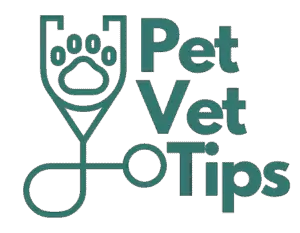
Does your Frenchie seem to be scuffing the toes of their hind legs when walking? Unfortunately, this is not an uncommon health complaint and could indicate a multitude of different conditions.
In this article, I included a table of conditions that may cause your French Bulldog to drag their feet divided into three different categories (neurological, musculoskeletal, and orthopedic problems) and a list of essential questions that will help you and your vet pinpoint the cause of your Frenchie’s symptoms.
However, the most common reason French Bulldogs drag their feet is due to nerve impingement caused by intervertebral disc disease (IVDD). In the last part of this article, you can find helpful resources on IVDD in French Bulldogs.

Conditions That Will Cause Dogs To Drag Their Feet
The table below lists several health conditions that may cause dogs to drag their feet. The list is extensive but not exhaustive, and not all of these conditions are all that common.
It is crucial to have your Frenchie examined by a vet to diagnose the cause of your pup’s symptoms and promptly initiate appropriate treatment.
| Nerve Problems | Muscle Problems | Joint/Bone Problems |
| Intervertebral disc disease | Muscular Fatigue | Hip Dysplasia |
| Degenerative Myelopathy | Myositis | Arthritis |
| Vertebral Stenosis | Muscle atrophy (often secondary to nerve or joint problems) | Cruciate Ligament Rupture |
| Fibrocartelagenous Infarcts | Muscular weakness (often secondary to diseases that cause lethargy) | Fractures |
| Tick Paralysis | Myopathy | Osteomyelitis |
| Tumors in or near the spinal cord | Botulism | Spondylosis (leading to nerve impingement) |
| Cervical Vertebral Instability | Tetanus | Spondylitis (leading to nerve impingement) |
| Infection of the spinal cord | Patella Luxation | |
| Peripheral nerve injuries |
6 Important Questions To Ask When Your Dog Is Dragging Their Feet
These are the type of questions that your vet will ask when examining your Frenchie and will help pinpoint the cause of your Frenchie’s symptoms and, therefore, initiate appropriate treatment.
1. Are They Experiencing Pain?
If your pup is visibly uncomfortable or yelping, they need to be seen by a vet as soon as possible.
The signs of chronic pain might not always be pronounced. For example, dogs suffering from arthritis might not vocalize but are considerably painful.
2. Which Feet And How Severe?
Are all four limbs affected, or is it only one limb?
The most common causes of dragging feet in French Bulldogs will often start as dragging either both or one of the hind legs.
3. When Are They Dragging Their Feet?
All The Time
If your Frenchie seems to be dragging their feet all the time, or if it appears to have progressed to the point of them dragging their feet all of the time, you need to seek vet advice urgently.
During or After Exercise
Abnormal gait during or after exercise is more commonly associated with muscle and joint problems.
Mild soreness or walking slightly stiff after exercise is usually not an urgent cause of concern, and you might just want to let your Frenchie take it easy for a few days. However, if they are very painful, if the symptoms seem to progress, or if you notice visible swelling, they need to be seen by a vet soon.
To read more on how Frenchies cope with running, check out the article here.
After Getting Up From Resting or Sleeping
Does your dog have difficulty getting up after resting but then seem to ‘loosen up’ after walking around for a while?
Stiffness for some time after getting up is commonly associated with degenerative joint conditions such as arthritis, but some muscle conditions can have a similar presentation.
4. Are They Just Scuffing Their Toenails, Or Are They Unable To place Their Feet Properly?
An animal’s ability to be aware of where and how they place their foot is called proprioception. If your dog seems unable to put their feet in an upright position normally, they lack proprioception. This is usually a reliable indicator that there is a neurological cause.
Muscle and joint problems usually do not cause loss of proprioception, and you might find that your dog is dragging their feet or scuffing their toenails, but when testing proprioception, it is normal. This may be due to them wanting to avoid bending painful joints.
5. Are Their Legs Crossing Over or Walking In An Uncoordinated Manner?
If you see your dog crossing over limbs while walking or seem unable to walk in a straight line straight (similar to someone who had a drink too many), it is usually an indication of neurological disease.
6. Are There Any Other Abnormalities Such as Swelling, Wounds, or Lumps?
Give your pup a good look over, starting from their toes and working your way up their legs and back. Remember to check under their belly as well. Are there any new bumps or swellings? How do the two front and two back legs compare with each other?
What Must I Do If My Frenchie Is Dragging Their Feet?
If you notice that your Frenchie started dragging their feet, you need to make the soonest available appointment at your vet. If your Frenchie seems to be in pain or the conditions are rapidly progressing to difficulty standing on their hind feet, you need to get an emergency appointment at the vet.
Intervertebral Disc Disease: The Most Common Cause Of Hind Leg Weakness In French Bulldogs
Intervertebral Disc Disease (IVDD) is a condition wherein the discs, or ‘cushions’ between the vertebral bodies, become brittle or less elastic, causing them to shift out of place to then press on the spinal cord.
When the spinal cord is impinged, it prevents the normal transmission of nerve signals up and down the spinal cord. So the first sign we see when the spinal cord is affected is neurological deficits in the hind legs.
This may progress to complete hind leg paralysis and, depending on which part of the spinal cord is affected, may lead to other signs such as fecal and urinary incontinence or complete tetraplegia.
The spinal cord does not have pain receptors, but the nerves branching off the cord have pain receptors. Therefore, the level of pain associated with IVDD will vary depending on which area of the spinal cord is affected and the degree to which peripheral nerves are involved.
IVDD has a very high genetic correlation, meaning that dogs that carry a specific genetic trait linked to chondrodystrophy (dogs with shorter legs such as dachshunds, bassets, Bulldogs, French Bulldogs, and even Beagles).
The prevalence of the gene for chondordystrophy is around 93% in French Bulldogs and there is a 78-93.5% prevalence of vertebral malformations in French Bulldogs (varying in different studies done on French Bulldog populations in different part of the world).
Treatment and Prognosis
Depending on the physical exam findings by your vet, they may recommend a CT or MRI scan to determine the exact location and extent of IVDD in your Frenchie.
There are two general routes to take when treating IVDD, but both involve strict movement restriction for anything from 4 to 12 weeks, depending on the severity.
The one route is medical treatment, where your vet will prescribe medication, physio, and other alternative therapies and then closely monitor your dog’s progress.
The second is surgery, where the herniated disc material is physically removed, and the pressure on the spinal cord is relieved.
Which of the two treatment routes your vet recommends is highly dependent on your dog’s specific risk factors.
Below are two videos by board-certified veterinary neurologist and neurosurgeon Dr. James Cellini. In the first video, he gives valuable information on IVDD. The second video is an informational video on French Bulldogs and the common health conditions they face from a vet neurologist’s perspective.
References
- Conte, A., Bernardini, M., De Decker, S., Ricco, C., Behr, S., Sanchez-Masian, D., Cherubini, G., De Risio, L. and Gutierrez-Quintana, R., 2020. Thoracic Vertebral Canal Stenosis Associated with Vertebral Arch Anomalies in Small Brachycephalic Screw-Tail Dog Breeds. Veterinary and Comparative Orthopaedics and Traumatology, [online] 34(03), pp.191-199. Available at: <https://www.thieme-connect.com/products/ejournals/abstract/10.1055/s-0040-1721375>.
- Kokkinos, Panagiotis & Ferreira, Diana & Murgia, Daniela. (2019). Screw tail and tail fold pyoderma -medical and surgical updates. Available at: https://www.ncbi.nlm.nih.gov/pmc/articles/PMC6875490/
- KURICOVÁ, M., LEDECKÝ, V., KVETKOVÁ, J. and LIPTÁK, T., 2017. Vertebral Malformations in French Bulldogs. İstanbul Üniversitesi Veteriner Fakültesi Dergisi, [online] 43(2), pp.1-1. Available at: <https://dergipark.org.tr/en/pub/iuvfd/issue/26805/322981>.
- Mansour TA, Lucot K, Konopelski SE, Dickinson PJ, Sturges BK, Vernau KL, et al. (2018) Whole genome variant association across 100 dogs identifies a frame shift mutation in DISHEVELLED 2 which contributes to Robinow-like syndrome in Bulldogs and related screw tail dog breeds. PLoS Genet 14(12): e1007850. https://doi.org/10.1371/journal.pgen.1007850
- O’Neill, D., Baral, L., Church, D., Brodbelt, D. and Packer, R., 2018. Demography and disorders of the French Bulldog population under primary veterinary care in the UK in 2013. Canine Genetics and Epidemiology, [online] 5(1). Available at: <https://cgejournal.biomedcentral.com/articles/10.1186/s40575-018-0057-9>.
- Packer, R., Hendricks, A. and Burn, C., 2012. Do dog owners perceive the clinical signs related to conformational inherited disorders as ‘normal’ for the breed? A potential constraint to improving canine welfare. Animal Welfare, [online] 21(1), pp.81-93. Available at: <https://helda.helsinki.fi/handle/10138/340402>.
- Penderis, J., 2022. Congenital vertebral abnormalities associated with screw tail conformation. BSAVA Congress Proceedings 2018: Brachycephalic stream, [online] April 2018. Available at: <https://www.bsavalibrary.com/content/chapter/10.22233/9781910443590.ch50sec7>
- Roedler, F., Pohl, S. and Oechtering, G., 2013. How does severe brachycephaly affect dog’s lives? Results of a structured preoperative owner questionnaire. The Veterinary Journal, [online] 198(3), pp.606-610. Available at: <https://www.sciencedirect.com/science/article/abs/pii/S1090023313004280>.

